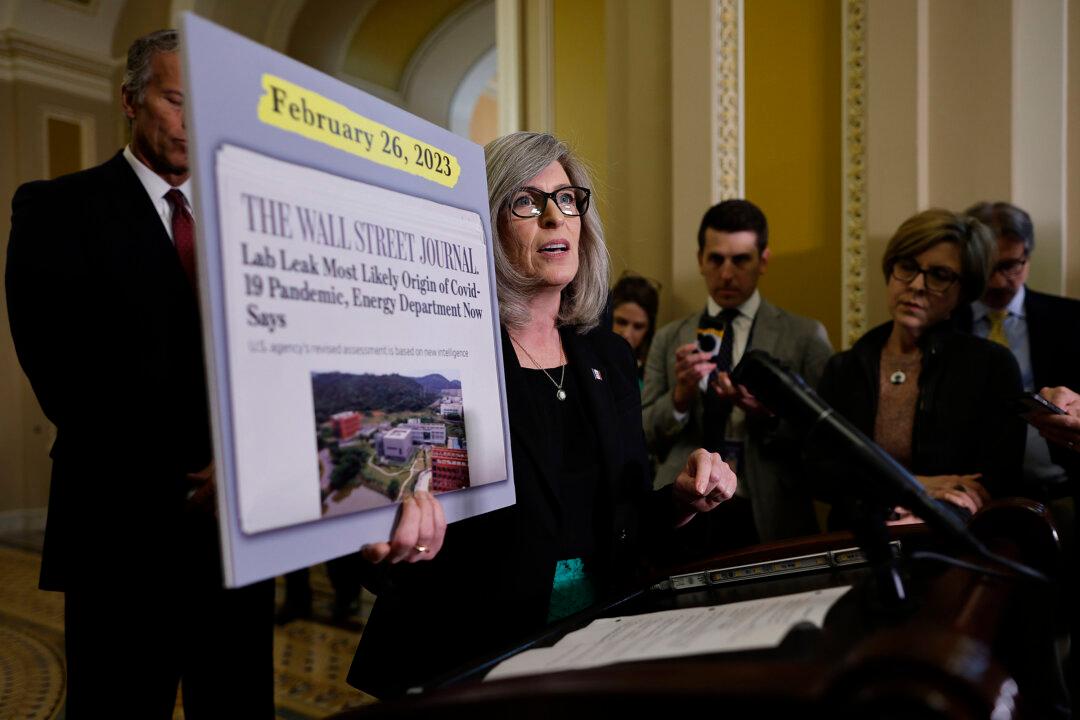President Joe Biden is the latest recipient of Sen. Joni Ernst’s (R-Iowa) Squeal Award, for what she says are the billions of tax dollars being wasted by “the Biden Boondoggle Express” on costly California commuter rail projects.
“Folks, your tax dollars would go a whole lot further if they were spent more wisely. The president has a kind of reverse Midas touch,” Ernst said in an April 25 statement provided to The Epoch Times. “But instead of turning to gold, the cost of everything he touches ... increases faster than the price of gold. And each of these Golden State gravy trains are guaranteed to receive golden tickets aboard Biden’s Boondoggle Express.”





